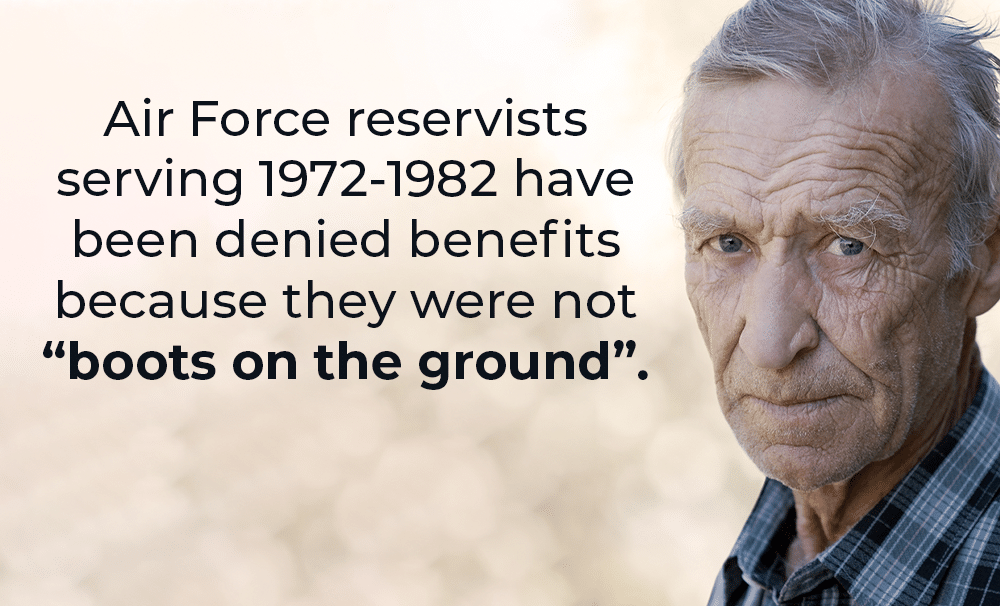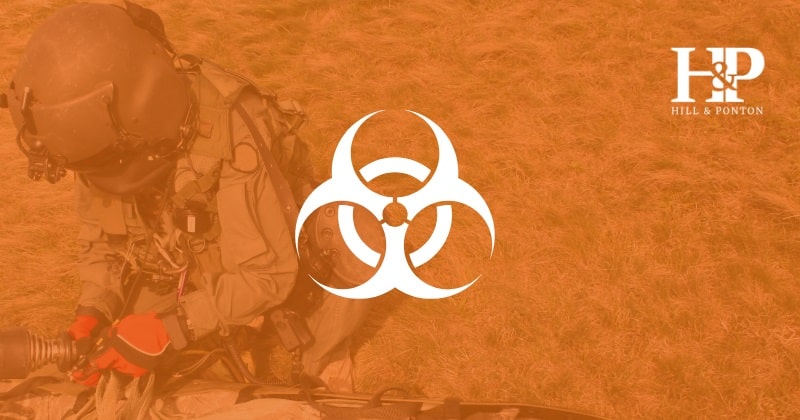Agent Orange Exposure and C-123 Aircraft
U.S. Department of Veterans Affairs has confirmed that eligible Vietnam War veterans are presumed to have experienced Agent Orange herbicide exposure between January 9, 1962 and May 7, 1975. Blue Water Navy Veterans are among the main groups affected by Operation Ranch Hand, a chemical warfare technique used in the Republic of Vietnam and Air Force bases in Thailand and Cambodia.
The Agent Orange Act of 1991 established a set of presumptive conditions that this toxic substance causes and the VA have since added to this list of conditions.
However, these eligible veterans may not have been the only U.S. military veterans exposed.
On January 9, 2015, the Institute of Medicine (IOM) released its latest public health report relating to health effects of Agent Orange exposure, called the Post-Vietnam Dioxin Exposure Agent Orange-Contaminated C-123 Aircraft. The VA tasked the IOM to study possible exposure to Agent Orange by Air Force reservists who worked on C-123 aircraft, which were used to spray Agent Orange during the Vietnam War.
The report details that approximately 1,500 to 2,100 Air Force Reservists trained and worked on the C-123 air crafts between 1972 and 1982. This may have occurred through aerosol exposure or ingestion.

Health Effects of C-123 Agent Orange Exposure
These Air Force reservists have suffered the same adverse health effects as Vietnam veterans, yet the VA consistently denied their disability claims because they were not “boots on the ground” and the VA did not believe that they could have been exposed to Agent Orange on the C-123 aircraft years after the planes were used to spray the chemical. The key findings of the IOM report are:
- The Air Force reservists would have experienced some exposure to chemicals from herbicide residue when working inside the C-123 aircraft.
- Surface levels at the time of the reservists’ exposure could not be extrapolated from the sampling measurements gathered long after the reservists had worked in the aircraft, but levels must have been at least as high as the available sampling results. [This means that because samples were not taken until many years later, it is not possible to determine the amount of the chemical that reservists were exposed to in service; however, the amount of chemicals in the aircraft at the time of service must have been at least as much as existed at the time samples were taken.]
- It is plausible that, at least in some cases (which cannot be associated with specific individuals), the reservists’ exposure exceeded health guidelines for workers in enclosed settings. Thus, some reservists quite likely experienced non-trivial increases in their risks of adverse health outcomes.
In simplest terms, these key findings mean that the IOM found sufficient evidence to support the contention that Air Force reservists could have been exposed to Agent Orange while working inside the C-123 aircraft. This should be good news for veterans who are seeking disability compensation related to such exposure, but it is still too early to tell how the VA will react to the IOM report. In fact, the VA’s website states that it has “assembled a group of clinical and other subject matter experts to review and respond to the report.” The website does explicitly state that “veterans may file a claim for disability compensation for health problems they believe are related to exposure to Agent Orange on post-Vietnam C-123 airplanes,” but it remains to be seen how the VA will treat these claims as they move through the system, including what sort of evidence will be required to prove exposure.
What Air Force Reserve Veterans Can Do
According to the VA, there are several steps that C-123 veterans can take if they believe they may have been exposed:
Register with the Agent Orange Registry
Veterans and some reservists who worked on C-123 aircrafts between 1969 and 1986 are eligible for the Agent Orange Registry.

Talk to a VA Health Care Provider
Veterans who are concerned about the health effects of Agent Orange exposure, or who are having symptoms that may be related to exposure, can talk to a VA Environmental Health Coordinator.
Apply for Disability Benefits
The VA has acknowledged that certain groups of post-Vietnam veterans may qualify for disability compensation for illnesses connected to agent orange exposure. According to the VA, these groups include:
- Active duty personnel who served in the United States Air Force at a location where a contaminated C-123 was assigned and who had regular contact with the aircraft through ground, medical, or flight duties between 1969 and 1986.
- Reservists who worked on ground, medical, or flight crews at:
Lockbourne/Rickenbacker Air Force Base in Ohio (906th and 907th Tactical Air Groups or 355th and 356th Tactical Airlift Squadron),
Westover Air Force Base in Massachusetts (731st Tactical Air Squadron and 74th Aeromedical Evacuation Squadron),
and Pittsburgh, Pennsylvania, International Airport (758th Airlift Squadron) between 1969 and 1986.
If you meet the above criteria, you may be eligible for disability benefits. Active duty and air force reserve personnel who were assigned to C-123 providers may still have experienced Agent Orange residue exposure, even if they weren’t part of Operation Ranch Hand during Vietnam-era wartime.




